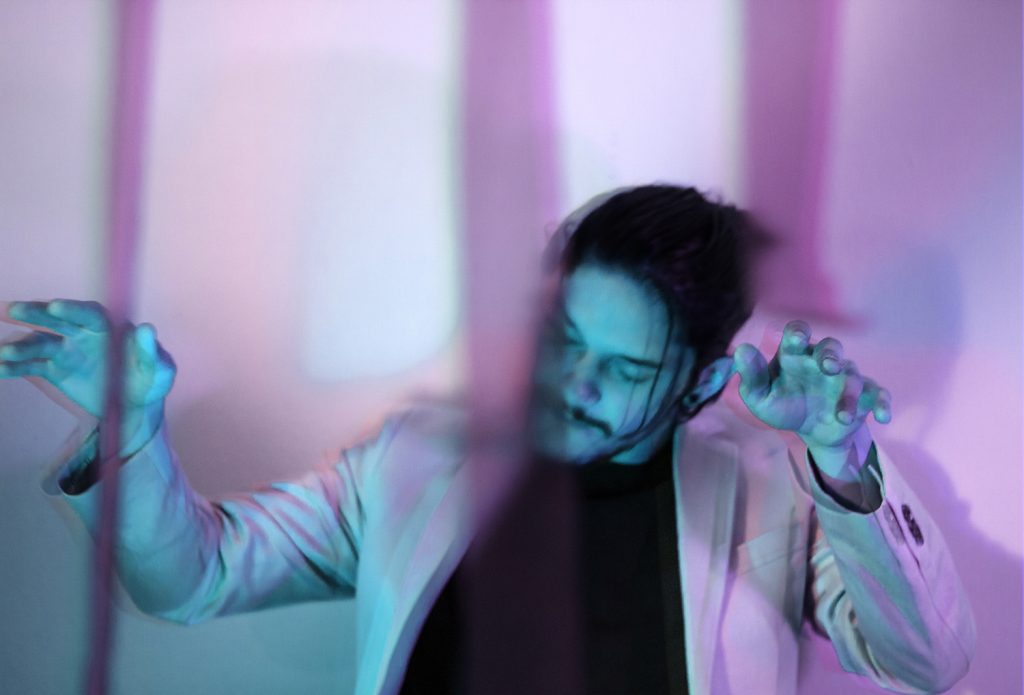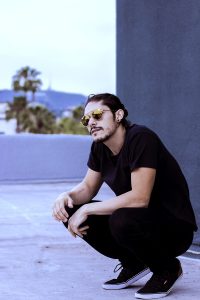As many musicians that started playing at young age, Will Martins thought the only money he would be making from music would be as a lead singer of his band or playing covers songs at bars. What Will didn’t realize was that his biggest checks would come from outside the stages and inside the studios.
We interviewed Will Martins, the brazil-born composer and music producer based in Los Angeles-CA, that revealed how he makes his living by composing original music for films, tv, commercials and music libraries. Will has gained his versatile skillet by working for highly successful people in the industry, from the award-winning composer Fil Eisler (Empire, Life of The Party, The Titan), Punks S/A (The Latin American Jingle Punks-The biggest Music Library of the World) to the Brazilian electronic producer Altermauz, known for successes as “Play with Fire” and “Drive By”. He also scored music for brands such as Nissan, Shell and Gatorade, and since January of 2019 Will integrates the creative team of the music production house Radium Media in Los Angeles-CA.
If you asked me 10 years ago, that I would be making a living out of music, I would say that would be by playing in a band, haha. it’s funny to say it out loud but I had no idea that people were actually paid to sit and make music all day.
Erich Rüthers: How did you started on music?
Will Martins: Curiously without any musician in the family I found myself interested on music at young age. I’ve always loved music in some way, I remember when I was a child, going to watch my cousins dancing ballet in the theater and I noticed everything, the acting, dancing, scenario but the music was inevitably my favorite part.
I started making or playing music on 6th grade. One day during that time, I had invited my best friend (which is still the same until nowadays) to watch this movie called “School of Rock”. When the movie ended, I was in shock, I just could think “How these kids, with the same age I have, can play all those instruments with such skill and feeling?”, something has just clicked inside of me and in the very next day I was already taking guitar classes after school.

PHOTO CREDIT: Far and Closer Photography. Will Martins
Q: How did you go into music for visual media?
A: Great Question! To be honest I hadn’t planned to become a composer for visual media, it just happened. At the time I graduated from advertisement college I was between playing with bands and producing other artists in my city (São Paulo-Brazil). I knew I wanted to work with something related to music. In fact my final thesis on college was about launching an app for the music industry. We went so deep on the project that my group and I won a national award for that (but that’s another whole story). After college I started sending resumes and my portfolio like crazy, for every record label, studio or music related company. I sent over 100 easily. A couple of weeks and some interviews later, a company called “Mugshot”. They wanted to offer me a temporary position of an in-house composer and music producer. My job was to compose “demos” for commercials, spots and small film cues. At that time I just had played and produced music for bands, and knew very little about this whole world. Of course I accepted the offer, and after the probation month, they hired me full time as a composer and music producer. Since then I had the opportunity to work in many great project for brands, artists and films that I could never imagined.

Q: How is your work routine? How a workday of a composer looks like?
A: Well for starters is not a routine at all, haha. I’m very methodic and organized with my personal routine and I always try to bring that mindset to my work environment, but working as a composer and music producer each day is a surprise. What I enjoy doing and helped me to not keep wondering around throughout the day is to plan my day ahead, I go over emails and projects to check what my priorities are and usually try to organize them. But trying to answer your question throughout the lens of a Independent or Indie Composer, a workday would include: Music Research (to check references, styles, genres that clients refer when send a project); Creating original music material (melody, harmony) through recordings or digital programming virtual instruments (most common nowadays); organizing all this material (Arranging or orchestrating); Finalizing (mixing and mastering); and last but not least, managing all the other aspects of his/her career (Meetings, branding, networking, finances, etc…).
Q: How many instruments do you play? is it a requirement for who works as a composer
and producer?
A: I consider myself a singer before anything else, just because it was the instrument I spent the most studying deeply, however I can play fairly enough (but not at a master leve) Electric and Acoustic Guitar, Bass, Trumpet and I have been studying piano jazz lately. I wouldn’t say a requirement, but having this knowledge it’s gonna facilitate your workflow and ideas to come up easily.

Q: What tips would you give to someone who’s looking/aspiring to work with music?
A: First, know the whole music industry chain before figuring out what you like to do. The music industry became so broad that you have a different role for any step of the production chain. If you like to create music, songwriter (lyrics), music producer (bands and artists) or composer (film and media) are great choices. If you like making music sound good or better, a music engineer or music editor would be more suitable; if you like playing live, being on the stage, recording in the studio a music performer/recording artist. In my case for example at the beginning of my career I wanted to be a performer, with time I got more into producing music for other artists until I reach the idea to compose for visual media.
Second, I know it sounds redundant, but all that I said above shouldn’t limit what you can or like to do. Meaning, don’t close yourself to new opportunities, if you want to be a composer and music editor, go forward, the most different abilities you can combine, the most unique your work is gonna be.

Third, don’t be delusional, this is a job as any other. Be professional, look for the best results and product you can deliver (by studying, perfecting your craft practicing, asking for help from others more experienced than you). Moreover, (and I’m sorry to tell you that) if you decide to follow this path is very likely that you won’t be able to be making music all day as your dreamt of, that’s not how it works. (unless you’re a millionaire-but if you were you wouldn’t be reading this interview of how to work with music, right?!). If you want to get constant projects coming in you’ll have to look out for them out there by going to networking events and spreading out your brand. Always be comfortable doing things that you don’t wanna do, that’s where true growth is.
Fourth, it’s a numbers game! Hit as many people you think would be interested in your work. Aim to connect with a 1000 “prospects” in a year. From this 1000, the worst case scenario is that 10% are really your final target, so we’re talking about 100 people that are willing to work with you. I’ve used this strategy every time I needed a job, I never got more than 2 weeks without a project.
Q: What are the promises for the future? Any new projects coming?
A: Radium is my new home and I’m very happy to be part of their creative team. I’ve always admired Brad’s and Kevin’s work and being received by them with open arms it’s been mindblowing. It’s the first time I feel my work has a deeper meaning than just making music all day, and we have a lot going on (besides being a music house we try to generate meaningful content for artists and for the entertainment industry). About projects, I can’t really reveal much about it, but there is a lot of exciting stuff cued in between music for films, series, commercials, library and of course artists records.





